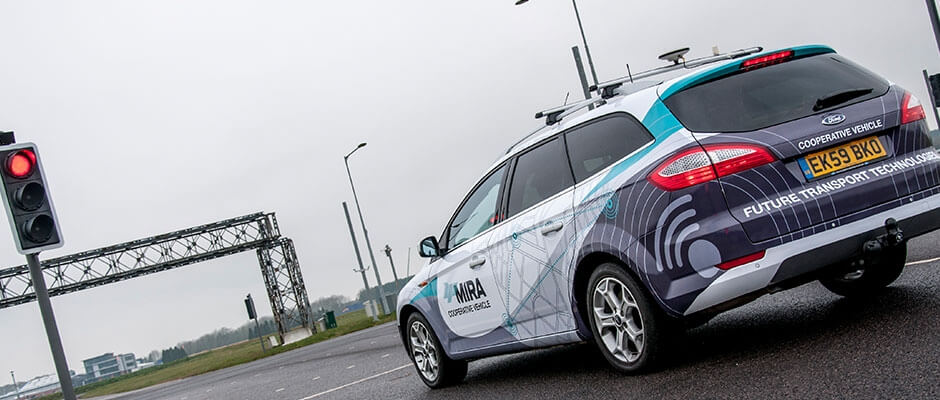With trials of driverless cars beginning on British roads, it isn’t surprising that questions have been raised around how this will eventually affect car insurance. With drivers taking the back seat, not controlling their vehicles, who would be held responsible in an accident? Will we start to see manufacturers being held liable?
Driverless car trials launched in London
Trials of automated vehicles began in the London borough of Greenwich on 11th February 2015, where driverless shuttles that use sensors to avoid hazards were introduced to the streets. Closed roads and pedestrian areas in Milton Keynes and Coventry will also start to see electric pods being tested, and there will be driverless cars in Bristol, where the idea is to gauge public reaction.
There is no legal barrier to the testing of automated vehicles on public roads, however, during these trials, a qualified driver will be in the vehicles ready to take control if needed.
The project launch was attended by Business Secretary, Vince Cable, as this is a major project for the UK with over £19 million being invested to try to put the UK ahead in the game and become global suppliers.
Vince Cable was reported by Sky News to have said: “The UK is at the cutting edge of automotive technology – from the all-electric cars built in Sunderland to the Formula One expertise in the Midlands.
“It’s important for jobs, growth and society that we keep at the forefront of innovation, that’s why I launched a competition to research and develop driverless cars.
“The projects we are now funding will help to ensure we are world leaders in this field and able to benefit from what is expected to be a £900bn industry by 2025.”
Multimillion pound project
According to the Insurance Times, the UK Autodrive project, which is being led by engineering and consultancy firm Arup, the three-year programme is worth £19.2 million. The project will be developing driverless car technology and working out how these autonomous vehicles will fit in with our urban environments.
Trials over the next two years will be looking at how pedestrians, drivers and other road users react to the autonomous vehicles. They’ll also be exploring the necessary changes in the law. For example, it was reported in Insurance Times recently that driverless cars could negate the need for motor insurance and driving licences. This would change motoring as we know it.
No driving licence needed with autonomous cars?
The Times had reportedly spoken to a source from Whitehall who said that the law would have to be changed to take away the need for a driving licence.
This would mean that car insurance as we know it now could ‘fall by the wayside’ as motor manufacturers would be insuring the vehicles themselves rather than focusing on the liability of the driver.
“These cars will potentially be much safer because they adapt to their surroundings and communicate with the road infrastructure rather than relying on the driver,” the source added.

More research needed
Of course, at the moment we are just in the trial stages and all thoughts of changes to the law and car insurance are just speculations. As reported in the Actuary last year, James Dalton, head of motor at the Association of British Insurers, has said that more research on driverless cars needs to be carried out.
He said: “Human error [accounts] for around 90% of road accidents the potential safety implications of autonomous technology are significant.
“The insurance industry is working with government, vehicle manufacturers, regulators, the legal community and through the industry’s research and repair centre on this potentially life-changing and life-saving technology.”
In the same article, Graeme Trudgill, the British Insurers Brokers’ Association executive director, said it was positive that the government are investing in research for driverless cars. “Further work will need to be completed on behalf of the industry before we understand the full implications of this technology and its impact on the insurance market,” he added.
Ethical implications?
Concerns have been raised regarding driverless car technology and its ability to make moral decisions. As a driver, if you need to take evasive action to avoid a crash you would. But what happens if the alternative to hitting that oncoming car is hitting a group of school children or a woman pushing a buggy? The question is would the autonomous technology be capable of making those sorts of decisions? Of course, the other side of the coin is, would you want that technology to make those decisions for you?
As Patrick Lin wrote in an article for Wired, “It’s one thing when you, the driver, makes a choice to sacrifice yourself. But it’s quite another for a machine to make that decision for you involuntarily.”
What do we think?
As a motor insurance company we have to plan ahead for changes in technology and the industry. Charlotte Halkett, Marketing Actuary at insurethebox, commented: “There is a long road between where we are now and fully automated vehicles on our roads. Different technology in the car can both increase safety and decrease safety: we must consider the human factor in introducing any new car gadgets. Insurers will have to raise their game to match customer need in the changing motor environment. They must think of innovative solutions and be prepared for a different motoring landscape”
What is clear is that the future of motoring is very exciting. All we can really say now is watch this space!
Sources:
Picture #1: cc Department of transports http://tinyurl.com/mksyzn6
Picture #2: cc Mark Doliner – Google self-driving car in Mountain View – http://tinyurl.com/kqruyjr
